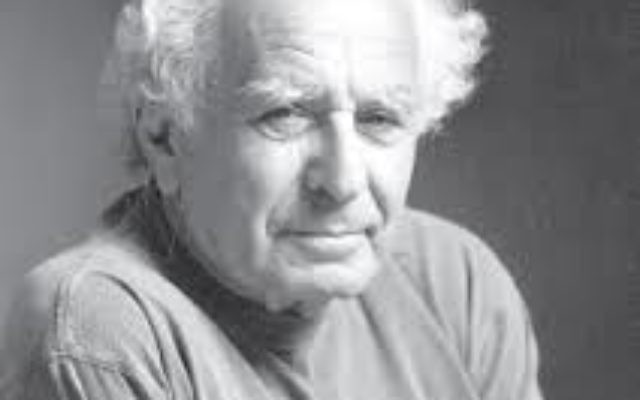To Proclaim Liberty for All
By Eugen Schoenfeld
It was perhaps about 50 years ago when my wife and I visited Philadelphia when I was attending the annual meeting of the Society for the Sociological Study of Religion.
To be in Philadelphia and not become acquainted with my new American heritage would have been a sin of omission. Thus, with my wife I visited the historic places where this nation was conceived and reflected on the events associated with the birth of this nation.
Among other sites, we visited the Liberty Bell, crack and all. I stood there and read the inscription emblazoned on the bottom of the bell, and immediately I felt great pride — a pride of being Jewish. I was proud that this new country seeking to declare its identity, its philosophy, in a sense its moral consciousness, found it in my people’s philosophy detailed more than three millennia ago.
The bell reinforced my pride that so long ago my ancestors were one of the first peoples to declare not a Jewish principle, but a universal principle that emphasized the ideal of liberty — in Hebrew, a state of deror.
I remember the time at about the age of 10 when I became conscious of the importance of liberty and made it my personal dream and my hope that it would become humanity’s dream for a time when all people would be free in their own lands.
In a way, my pride as a Jew and as a survivor of the greatest conflagration of history — the Holocaust — must have been similar to the pride felt by Benjamin Disraeli.
Disraeli, although having converted to Christianity, as so many Jews did in Europe during the 19th century to gain economic and political status, maintained his inner identity as a Jew. This former Sephardi Jew with a swarthy complexion could not hide his origins.
Even as the prime minister of Britain, he had to withstand the slings directed at him by Christian members of Parliament, many of whom behind his back called him “the Jew.” At one such occasion, he retorted to his tormentors: “When your ancestors ran through forests, clad in animal skins, my ancestors wrote the book.”
I stood in front of the Liberty Bell, and I took delight that when the Founding Fathers of this nation sought an appropriate slogan that would reflect this country’s idealism, they went to the book and selected, albeit out of context, an appropriate passage from the Torah that my ancestors had declared to be their ideal many millennia ago.
The text on the bell reads, “Proclaim liberty throughout all the land unto all the inhabitants thereof.” It is part of a larger sentence that describes the process of proclaiming the coming of the Jubilee year.
The Torah chapter that describes the coming of the Jubilee year does not deal with the issues important to the Founding Fathers — ostensibly the crown’s and the associated state religion’s legitimate right to deprive personal rights to self-governance. The British government, just like the theocracy in ancient Israel, maintained its legitimacy by declaring that it was granted by G-d.
Of course, individual and personal freedom from government and religion cannot exist in a theocracy, the form of charisma-based power in ancient Israel. Judaism, unlike the British crown, diverted the issue of personal liberty and proclaimed that the Torah’s intent was to guard the people, especially the poor, from the power of the wealthy and powerful. So the proclamation of deror consisted of guarding the poor, the economically weaker segment of society, from the clutches of those who had the power to force the poor into slavery and or to take away land that was considered a familial heritage.
Thus we developed the idea of the Jubilee, when the poor could reverse some of the consequences of poverty and repossess sold familial land or be freed from slavery compelled by debt.
So the Torah portion in which we encounter the idea of liberty is not what the Founding Fathers sought — namely, individual rights as we know them today, such as freedom of thought and freedom from religion. The idea of freedom, as reflected in the Torah, is freedom from economic want, from the economic powerlessness imposed by poverty.
Rabbinic view holds that freedom and poverty are antithetical. Poverty not only makes us slaves to others, but also generates conditions that are horrendous, leading the rabbis to proclaim that the greatest blight on humanity is not freedom of thought, but poverty. Hence, they declared that the poor could be considered as though they were dead.
No wonder therefore that the chapter on the Jubilee also raises the question: If your brother becomes impoverished and his hand falters, what is my (or, better yet, what is our collective) responsibility to the poor?
The Torah tells us that given such conditions, when the poor person “extends his hand toward your direction, you should extend your hand to him, you should hold on to him and keep him in your grasp.” That guidance applies regardless of the poor person’s status: one born into Judaism, a proselyte, or even a “resident stranger,” a non-Jew who rejected idol worship.
Hence the rabbis taught us: All Jews individually and collectively — the Jewish society, the Jewish kehillah — are responsible for the welfare of the poor. We are taught in this chapter of the Torah not to take advantage of those who have failed economically.
Today in our highly free but individual-centered society and economy, the contrary holds true. Unlike in ancient Israel, in which Judaic idealism refused to put blame on the poor, today we blame the poor for their poverty, and we place on them not only the economic burden of their poverty, but also the burden of shame.





comments